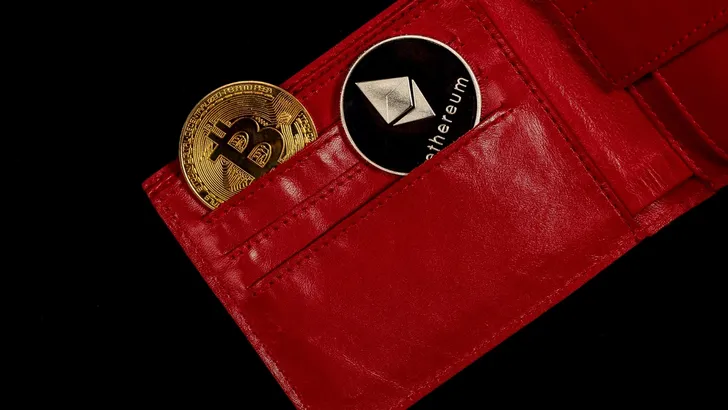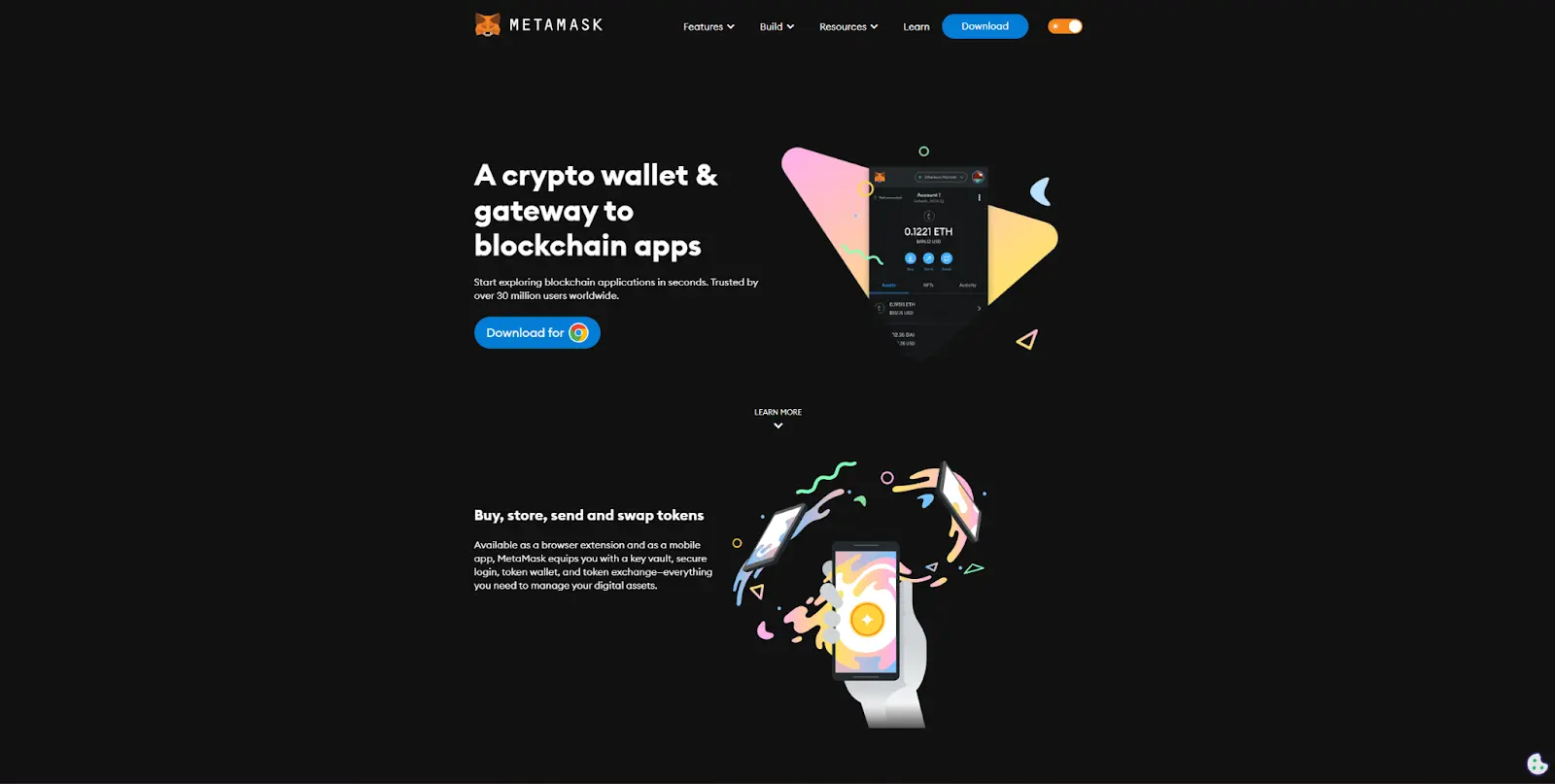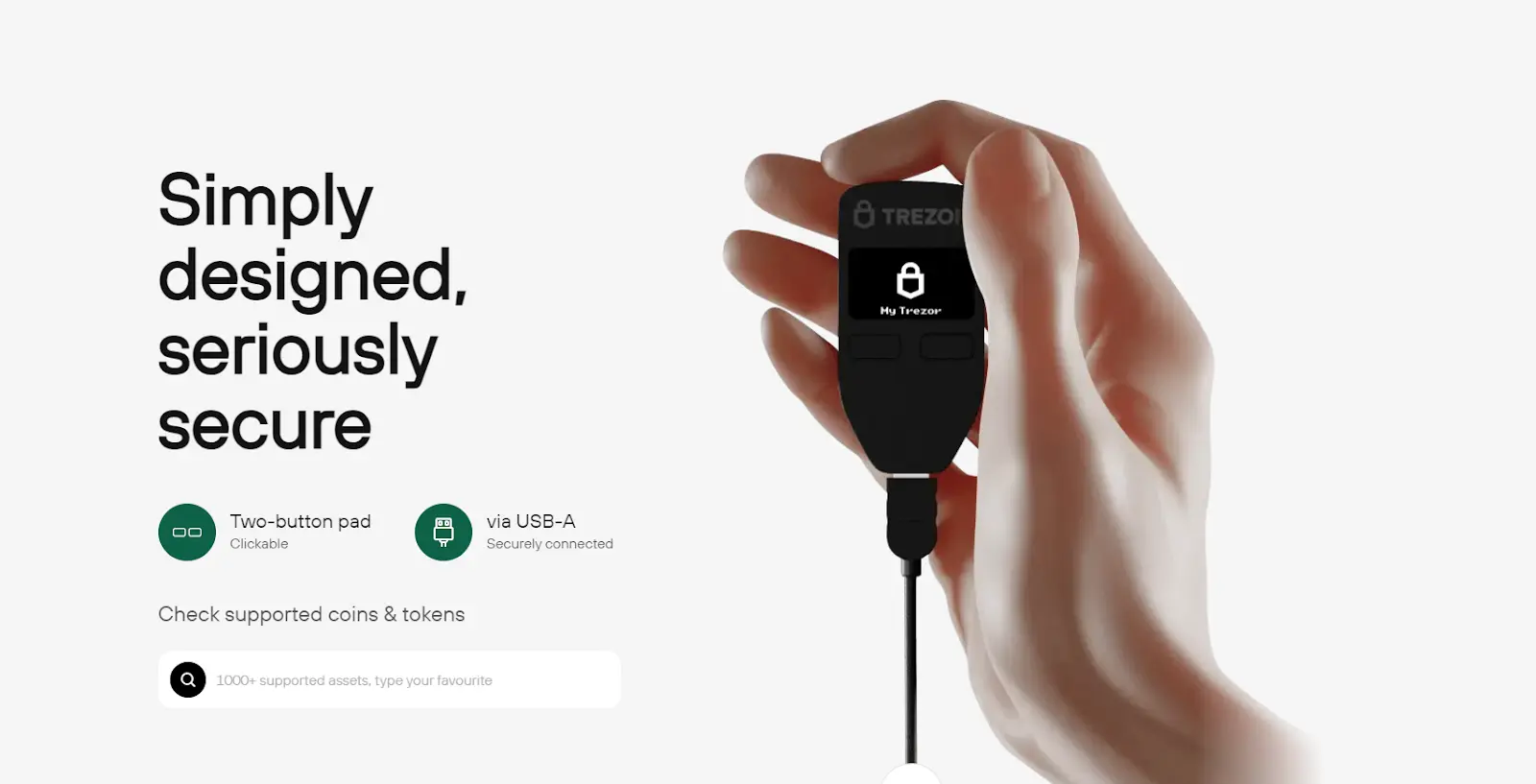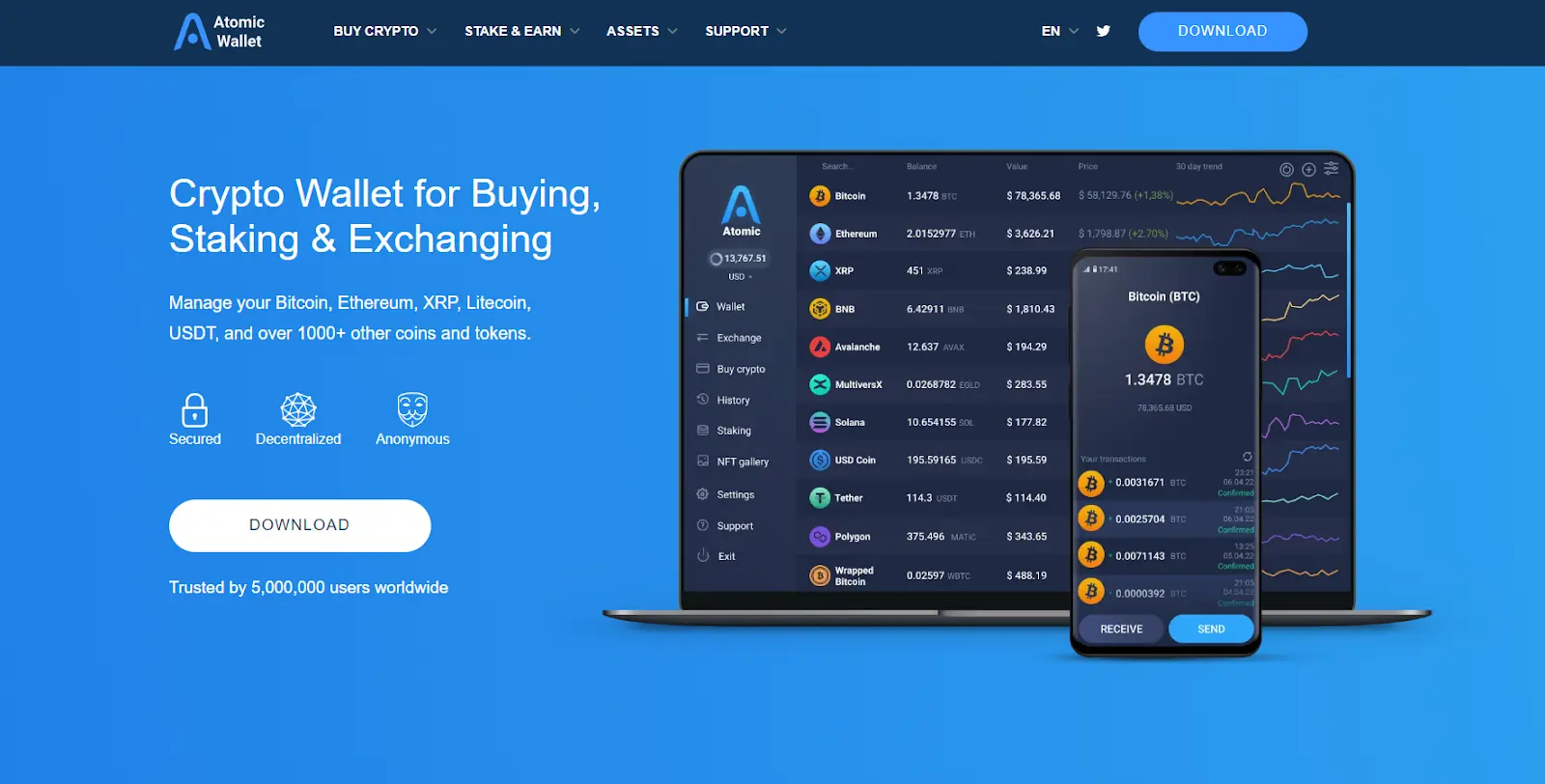7 Best Ethereum Wallets: How to Store Ethereum Safely

crypto wallets
In an ever-evolving world of digital currencies, Ethereum stands as the biggest and most popular altcoin, second only to Bitcoin in terms of market cap. It’s one of the safest long-term cryptocurrency investments while still offering the potential for huge growth. So, it should come as no surprise that people are looking for the best Ethereum wallets for their assets.
On top of that, Ethereum’s utility extends far beyond mere value exchange. Its blockchain features smart contracts, which allow for a myriad of dApps to be built on top of it. After all, there’s a reason why the community considers Ethereum to be “digital oil.”
The combination of Ethereum’s popularity and functionality resulted in numerous wallet options. Some focus on security, while others offer exciting features. Let’s find out which ones are the best!
7 Best Ethereum Wallets
The best Ethereum wallet for you will depend on your needs and circumstances. There are various factors to consider before choosing one, including your technical knowledge, the number of coins you have, your reasons for investing in cryptocurrency, and more.
That’s why we created a comprehensive list of Ethereum wallets that features the best ones across every category. Keep reading to discover which wallets are right for you.
#1. MetaMask

MetaMask is one of the most popular Ethereum wallets, with more than 30 million users. It represents a bridge between traditional web browsers and the Ethereum network since it comes in the form of a browser extension as well as a smartphone app.
Some of the key benefits of MetaMask include:
- Accessibility. MetaMask allows you to access the thriving world of DeFi through a simple browser extension.
- DApp support. You can interact with various decentralized applications directly from your wallet.
- Swap feature. You can exchange tokens within the wallet itself without needing to go to other exchanges.
- Multiple blockchains support. Apart from supporting Ethereum and its network, MetaMask works with a number of other ecosystems, such as Polygon, Binance Smart Chain, Avalanche, Fantom, and more.
However, the wallet is not without drawbacks. Some of the cons include:
- Phishing risks. Since this wallet is so popular, there are many malicious websites pretending to be MetaMask.
- Web browser exploits. If you’re using the browser extension version, your wallet may be susceptible to the same vulnerabilities as web browsers.
#2. Ledger Nano S Plus

Ledger Nano S Plus is a hardware wallet that provides enhanced security for storing your Ethereum. Unlike MetaMask, which is considered a hot wallet, Ledger Nano S Plus is a cold wallet that keeps your assets offline. It’s a physical device that you can disconnect from the web to protect your private keys from online hacking attacks.
This hardware wallet comes with handy software that allows for its setup and use. But even when you connect it online to perform transactions or manage your crypto, every action that you want to perform requires the press of a physical button for confirmation. That makes this Ledger much safer than any software wallet.
Another key feature of the Ledger Nano S Plus is that it supports more than 5,500 cryptocurrencies, many apps, and NFTs.
On the other hand, there are a few key considerations before choosing this wallet, such as:
- Price. Ledger Nano S Plus generally costs less than $100, but that can be a lot for some users, especially when there are many free software wallets.
- Learning curve. Setting up and using a hardware wallet requires a certain level of technical know-how.
It’s worth noting that Ledger, as a company, offers several other models in different price ranges that come with varying features.
#3. Trezor Model One

Trezor Model One is another solid choice for a hardware Ethereum wallet. It shares many similarities with the Ledger Nano S Plus regarding how it operates, with one key difference: Trezor Model One’s code is open source, and it’s passed public scrutiny on many occasions.
Here are some of this Trezor wallet’s key features:
- Intuitive design that makes it easy for anyone to learn how to use it
- Built-in buying, selling, and exchanging services using its native app
- Advanced security features, such as a passphrase for seed protection
Apart from Ethereum, this wallet supports ERC-20 tokens as well as Bitcoin. However, one of the drawbacks of Trezor Model One’s code being open source is that it’s prone to physical hacking. If a malicious actor grabs hold of your device, they can extract your private keys from it, which is impossible with Ledger’s hardware.
Lastly, the manufacturer also has a Trezor Model T to consider. It is pricier but comes with an LCD touchscreen, supports more cryptocurrencies, and offers additional features.
#4. Guarda

Guarda offers an all-in-one solution for your Ethereum, Bitcoin, and many other crypto assets. There are three different types of wallets that you can choose from, which are:
- Desktop wallets. You can download and install Guarda on your Windows, Mac, or Linux computer.
- Mobile wallets. Visit the iOS App Store or Android Google Play service to download and install a secure and convenient app.
- Online wallets. Create a wallet that you can conveniently access from anywhere using your browser.
Here are some of the key perks of using the Guarda wallet for your Ethereum:
- Versatility, as you can have your wallet on multiple devices and even as an online version
- Features since you can use the wallet to purchase Ethereum with fiat, exchange it for other currencies, stake it, and more
- Security since Guarda is a non-custodial wallet, meaning your private keys are not stored on their servers
Some of the drawbacks include:
- Reliance on the internet connection
- No integration with hardware wallets
Lastly, Guarda offers a prepaid Visa crypto card you can top up with your Ethereum and use as a traditional payment card at POS terminals.
#5. Exodus

Exodus is one of the most popular software Ethereum wallets. In addition to ETH, it supports thousands of other crypto assets on more than 50 networks. It’s a mobile-first crypto wallet that also features a desktop application for easier asset management.
Among many handy perks, the Exodus wallet allows its users to:
- Easily access a wide array of handy Web3 apps
- Buy numerous different cryptocurrencies using their local fiat currency
- Use a built-in exchange to swap their assets for other cryptocurrencies
- Take advantage of live charts and portfolio features for crypto management
- Contact live support 24/7
Furthermore, the Exodus wallet is partnered with Trezor, and its software is compatible with both the Trezor Model One and the Trezor Model T. In essence, you can use Exodus to manage crypto on your Trezor. That way, you’re combining the security aspects of a hardware wallet with the features of a software one.
#6. Trust Wallet

Trust Wallet is a Binance-owned, feature-packed software wallet that supports 70 blockchains and millions of assets. In addition to ETH, you can use it to store and manage your BTC, LTC, XRP, SOL, DOGE, and many other coins and tokens.
This wallet was first designed as a mobile wallet. You can download it from the App Store, Google Play, or as a standalone Android APK file. Recently, they released a browser extension version, so you can now manage your Trust Wallet using a Chrome-based browser on your PC.
Some of the key features of this wallet include:
- Buying crypto with a fiat payment card
- Using an exchange without performing KYC verification
- Accessing decentralized apps directly through the app
Before opting for this wallet, it’s important to keep its centralized ownership in mind. Some users prefer wallets that are neutral and not directly affiliated with or dependent on exchanges or major corporations.
#7. Atomic Wallet

Atomic Wallet was created by one of the former Bitcoin Foundation’s vice chairmen, Charlie Shrem. It’s a multi-currency crypto wallet that has accumulated more than 5 million global users, mainly due to its ease of use and customer support.
Here are some of the wallet’s key features:
- Buying crypto directly with fiat
- Receiving cashback for swapping crypto pairs with the wallet
- Staking your ETH and other assets to earn up to 20% APR
- Purchasing and exchanging crypto anonymously without accounts or verifications
However, Atomic Wallet was targeted by hackers in June 2023. It’s still unclear exactly how the attack occurred, though some suspect that it was a supply chain attack.
While the company claims that less than 1% of its users lost their funds, that’s still around 50,000 individuals who lost around $35 million in crypto.
Types of Ethereum Wallets
All Ethereum wallets (and crypto wallets in general) can be broadly categorized into two groups, which are:
- Cold wallets that store your private keys offline for improved security
- Hot wallets that keep your assets connected to the internet for increased utility
Based on how you interact with them, these can be classified as:
- Hardware wallets
- Software wallets
- Paper wallets
#1. Hardware Wallets
Hardware wallets are considered some of the safest cold wallets in the world of cryptocurrencies. These are physical devices you use to keep your private keys offline and safe from online hacking attacks. Some notable companies that create hardware wallets include Ledger and Trezor.
Most hardware wallets come with accompanying software that provides utility and allows easy management of your Ethereum. Even then, most actions (such as transfers or purchases) require you to physically press a button on your hardware wallet for confirmation.
However, hardware wallets are not a 100% foolproof solution. They require users to write down a seed phrase and store it securely. If anyone gets a hold of that phrase, they can obtain the assets regardless of other safety features.
#2. Software Wallets
Software wallets are ones you can install or access using devices such as a computer, smartphone, or tablet. They can be software solutions for your PC, Android or iOS apps, browser extensions, and more.
These wallets are hot Ethereum wallets since they are connected to the internet. That makes them less secure than hardware wallets. On the other hand, software wallets offer improved utility and features such as built-in portfolio managers, exchanges, dApp compatibility, and more.
Popular software wallets include MetaMask, Exodus, and Trust Wallet.
#3. Paper Wallets
Paper wallets are pieces of paper with private keys written on them in the form of mnemonic phrases. The use of these wallets is highly discouraged since they require extensive technical knowledge.
Furthermore, while they are considered cold wallets (physical paper can’t be hacked), the process of creating them involves using Ethereum wallet private key generators.
How Do Ethereum Wallets Work?
Ethereum wallets allow users to safely store,send, and receive ETH, interact with dApps, create smart contracts, and more. At its core, every wallet consists of two cryptographic keys:
- Public Ethereum wallet address, which users share to receive crypto
- Private key, which should be kept secret as it's used to authorize transactions and access funds
Depending on the wallet you choose, you’ll be presented with various features and interfaces. Regardless, the process of sending and receiving ETH consists of a couple of simple steps.
Here’s how to send ETH using your wallet:
- Initiate a transaction by opening your wallet and choosing the option to send crypto.
- Input relevantdetails, such as the recipient’s ETH address and the amount you want to send.
- Set the Gas price that you’re willing to pay for a transaction. Keep in mind that paying a higher transaction fee can result in quicker processing times.
- Confirm the transaction using your private key after reviewing all the details.
Receiving ETH is even simpler, and it goes like this:
- Find your public ETH address in your wallet. It can be an alphanumeric string starting with “0x” or a QR code.
- Share your public address with the sender.
- Wait for the transaction to be confirmed once the sender initiates it.
How to Choose the Right Ethereum Wallet
Choosing the right Ethereum wallet that suits your needs involves careful consideration of several different elements. There’s no one-size-fits-all solution, so the best choice is the one that suits your needs.
Here are some of the key factors to consider:
- Security vs. convenience. If security is your primary concern, you should look into hardware devices and safety features such as 2FA, biometric access, and non-custodial wallets. If you’re an active trader and investor, you might want wallets that offer convenient features such as portfolio managers and built-in exchanges.
- Cost. If you’re a fresh investor who doesn’t have thousands of dollars worth of ETH, you likely won’t need a pricey hardware wallet. Instead, you can opt for a free software wallet. You can also keep your assets on an exchange until you’ve grown your holdings.
- Multi-currency support. If you plan on having more than Ethereum in your portfolio, you should look into wallets that support a large number of cryptocurrencies. This is especially important if you want to invest in particularly obscure altcoins.
- Experience and user interface. Beginner investors should look for user-friendly wallets that don’t require high levels of technical competence to set up and use. Once they’ve acquired enough knowledge, they can move on to more advanced Ethereum wallets.
- Compatibility. Some Ethereum wallets are compatible with various devices and can be installed on PCs, smartphones, tablets, and more. On the other hand, there are mobile-only and desktop-only wallets, or those that are specific to an operating system.
While these are some of the most important aspects, you can also consider whether a wallet has a backup and recovery option, if its code is open-source, what its reputation is, whether it has a strong community, and so on.
Key Takeaways
As the world of cryptocurrency continues to grow and evolve, it’s becoming more important than ever to safely secure your assets. While ETH traded for less than a dollar when it came out, its all-time high price was almost $5,000.
Not only that, but chances are that Ethereum is going to keep moving forward. As a result, it’s paramount to do research and figure out what the best and safest Ethereum wallet is for you.
That way, you’re not only temporarily storing your coins and protecting your current assets; you're also safeguarding your digital and financial future!
Ethereum Wallets FAQ
What is Ethereum?
Ethereum is a transparent and decentralized blockchain platform that allows developers to deploy smart contracts and build dApps on it. The network’s native coin, Ether (ETH), is the most popular altcoin in the world and second only to Bitcoin in market capitalization.
What is the best wallet for Ethereum?
The best wallet for Ethereum is the one that suits your needs. If you want unprecedented security, you’ll want a hardware wallet like the Ledger Nano S Plus or Trezor Model One. On the other hand, software wallets like MetaMask and Exodus offer more features and are easier to use.
How to get an Ethereum wallet?
There are several different ways to obtain an Ethereum wallet. To get a hardware wallet, you should buy it directly from the manufacturer. Software wallets can be downloaded and installed from official websites and app marketplaces. Lastly, you can use an Ethereum wallet generator to create a paper wallet.
Is MetaMask a safe wallet for Ethereum?
MetaMask is considered one of the safest software Ethereum wallets. However, keep in mind that it’s a hot wallet that is still susceptible to hacking attacks. Browser extension versions can be vulnerable to browser exploits, and there are always phishing and malware concerns.
How to buy Ethereum?
The easiest way to buy Ethereum is via a centralized exchange, such as Binance, Kraken, or KuCoin. These exchanges allow you to buy ETH directly with fiat using your credit card, bank transfer, or third-party payment services. That requires creating an account with the exchange and performing KYC verification.